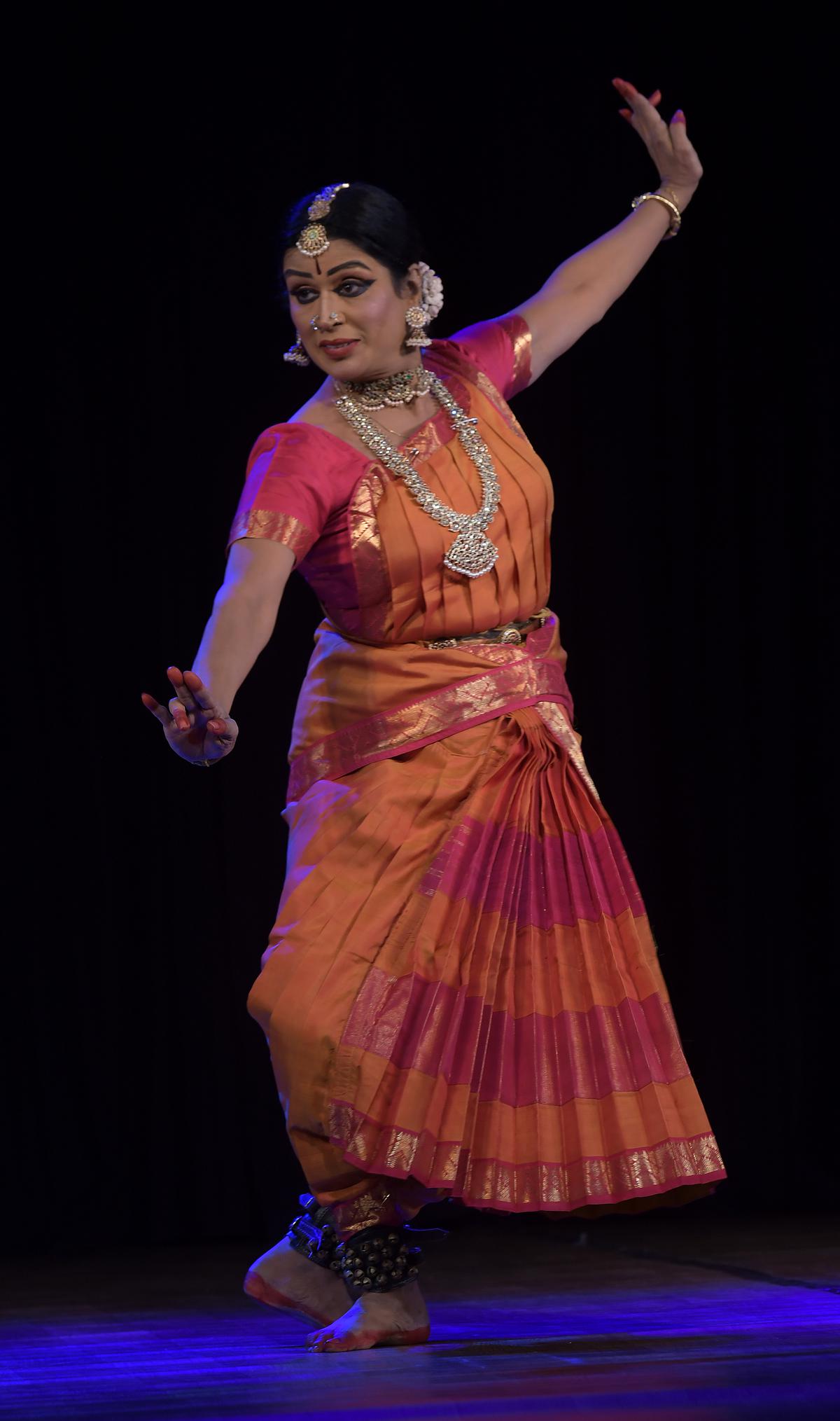Rajeshwari Sainath performing at the Narada Gana Sabha in Chennai | Photo Credit: Vedan M
Rajeshwari Sainath’s performance had many features – great orchestral support, the tempo of the program and the special quality of the varnam, which was the main part.
Through her years of practice, Rajeshwari has focused on the rhythm – she constantly experiments with it. He is credited with discovering the neurobiology in dance, where neural pathways pave the way for a graceful mind-body connection, and the mathematical effects in the Bharatanatyam repertoire (his doctoral degree in mathematics focused on the intricacies of rhythm). also allow for And Rajeshwari demonstrated that in his text, composed more than 25 years ago, notably through a rare section Jati Triputa Tala Varnam (it is usually in Adi).
Composed by Guru Karaikudi Mani

Teamed up with Guru Karaikudi Mani, the varnam, ‘Kannan Ennke Sondhamadi’ (Charukesi) had not only the devotional aspect but also the fervor of the rhythm through the talas and nadis that made it worth a watch.
It was specially written and composed in the third Triputa – Teen Kalai, Khanda Nadai, Khanda Jati Triputa Taal 1/2 Adam – under the guidance of a mridangam maestro. The Bhava Bhaga of the piece showcased Krishna’s pastimes, with lyrics by Kumbakonam Gajendran. Rajeshwari brings out the mischief as well as the devotional elements.
The footwork was slow and effortless, allowing the viewer to appreciate the beauty of the rhythm. Krishna stealing the garments of the gopikas versus saving the honor of Draupadi, dancing on the hooded snake of Kalinga versus lying peacefully on the mighty Adisesha, and rising above everything from the petty Vamana, even Contradictions were used to rise above even the perceived sky.
Rajeshwari started singing with verses from the Vishnu Sahasranamam in Shankarabharanam, etc., which were composed by Rajkumar Bharathi. The Varnam was followed by a Kshetray Padam – ‘Indu Endu Vachhitivira’ (Surutti; Mishra Chapu). He concluded with a Thillana in Madurai T. Srinivasan’s composition Sumanesa Ranjani.
On the nattuvangam was Karra Srinivasa Rao, who was complemented by Gomathi Nayagam on vocals, Nagai Narayanan on mridangam, Karaikal Venkat on violin and Devaraj on flute.